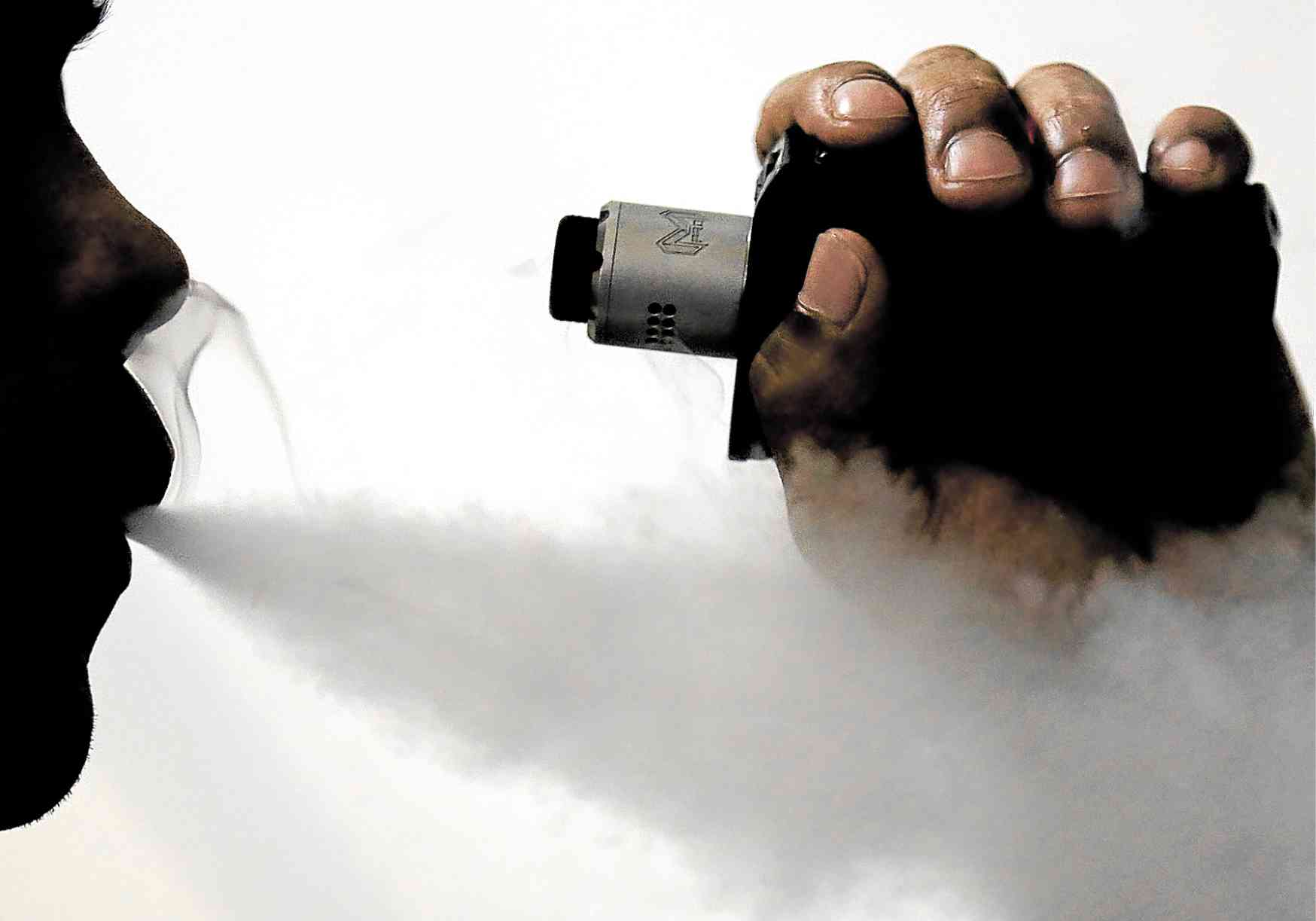
(FILE) E-cigarette proponents say vaping is better than smoking tobacco, but health officials say there is no study yet on the long-term effects of vaping. —RICHARD A. REYES
MANILA, Philippines — The Department of Education (DepEd) on Thursday appealed to President Rodrigo Duterte to veto a bill that aims to lower the age of access to vaporized nicotine (vape) and non-nicotine products as well as novel tobacco products.
“As a government institution championing young Filipinos’ well-being, we are taking a stand against the so-called ‘anti-health’ vape bill, which will weaken existing law and the executive order against Electronic Nicotine Delivery Systems (ENDS) or Electronic Non-Nicotine Delivery Systems (ENNDS) commonly known as e-cigarettes or ‘vapes,’” DepEd said in a statement.
DepEd said that if passed into law, the bill will “erode” the important provisions already in Republic Act No. 11467 and Executive Order No. 106 both signed by the President in 2020. It noted that the law and the executive order already regulate electronic nicotine or non-nicotine delivery systems, heated tobacco products, and other novel tobacco items.
In particular, the bill will lower the access restriction age from 21—as currently stated by RA 11467 and EO 106—to 18 years old.
According to DepEd, at least 870,000 learners in the basic education sector for School Year 2020 to 2021 are 18 years old, while close to 1.1 million learners in senior high school are 18 to 20 years old.
“This is the number of learners who will become legally allowed to be marketed the harmful products once the bill becomes law,” DepEd stressed.
“We teach in schools how the part of the brain that is responsible for rational decisions does not fully develop until one is in their mid-twenties. Before that age, young people are very vulnerable to engaging in risky behaviors such as substance use and abuse,” the department added.
“If there will be any attempt to amend existing laws, it should be to increase the age of access to harmful products, not lower it.”
The proposed measure also permits online sales and allows flavors other than plain tobacco and menthol, the only two flavors currently allowed by law. Further, the bill is promoted to “reduce the harm caused by smoking,” added DepEd.
However, the education department pointed out that in contrast, the World Health Organization has said that “ENDS are undoubtedly harmful,” and that flavors appealing to children and advertising through social media platforms are among the tactics employed by tobacco and related industries to attract younger generations.
“This is of great concern for us in DepEd. A study conducted by the Philippine Pediatric Society among our Grades 7-9 DepEd learners revealed that 6.7% ‘have tried and are using e-cigarettes,’ and that the top reasons for vape use among our learners were online accessibility (32%), varied flavors (22%), and the belief that e-cigarettes are safer than tobacco (17%),” said the agency.
DepEd also expressed concern on the portion of the bill that transfers the regulation of these products from the Food and Drug Administration (FDA) to the Department of Trade and Industry. The agency believes that the FDA is in the best position to regulate harmful products, consistent with evolving medical and scientific studies, as currently stated in RA 11467.
“As we continue to implement a comprehensive tobacco control program in schools to safeguard the health of learners, DepEd is hopeful that our leaders and legislators will constantly champion a healthy lifestyle among our youth,” the department said.
The so-called vape bill is currently up for Duterte’s signature after the House of Representatives ratified in January the report of the bicameral conference committee which reconciled the disagreeing provisions of Senate Bill No. 2239 and House Bill No. 9007.
RELATED STORIES:
Medical groups ask Duterte anew to veto vape bill
Groups urge Duterte to veto vape bill